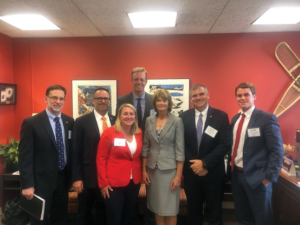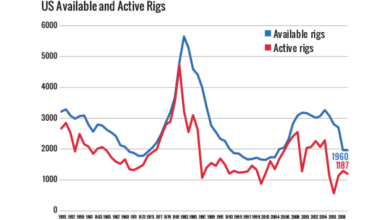Wirelines

IADC recently hosted a fly-in in Washington, DC, during which 22 meetings were held with 19 Congressional offices and two executive agencies. An educational Offshore Drilling 101 presentation was also given to Congressional staff, agency staff and trade associations. The group met with members of Congress from Alabama, Alaska, Florida, Louisiana, Mississippi, Nevada, North Carolina, South Carolina, Texas and Virginia. They also met with representatives from Customs and Border Protection and the Bureau of Safety and Environmental Enforcement.
The Environmental Partnership Issues 2019 Annual Report
The Environmental Partnership recently issued its 2019 Annual Report, highlighting efforts to fulfill key program principles: taking action, learning and collaborating. The group was formed in December 2017 by 26 oil and gas companies. In January 2018, the group implemented programs that target emissions through collaboration, proven methods and advanced technology. The programs consist of leak detection and repair; high-bleed pneumatic controllers; and improving the manual liquids unloading process.
IADC: House bills to ban drilling are shortsighted
In June, the US House Natural Resources Committee sent two bills to the House floor that, if enacted, would ban drilling and exploration activities throughout coastal areas in the Atlantic and Pacific Oceans, as well curtail drilling and exploration throughout the coastal plain of the Arctic National Wildlife Refuge (ANWR) in Alaska. These bills will be voted on in September. H.R. 1146 would eliminate oil and gas leasing, development, production and transportation programs in and around the coastal plain of the ANWR. H.R. 1941 would bar offshore drilling in federal waters along the Atlantic and Pacific coasts.
IADC issued a statement in response, calling the bills shortsighted. The statement noted that an offshore energy moratorium would stifle job growth and deprive the US Treasury of considerable revenues that would provide funding for vital government programs.




